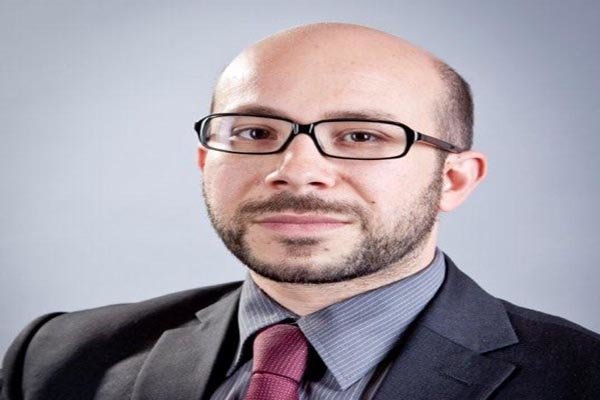NATO and Russia have become strategic competitors in Eastern Europe: ELN research director

TEHRAN - Lukasz Kulesa, research director at the European Leadership Network (ELN), rejects the views that NATO and Russia are entering a new Cold War, however he believes that NATO and Russia have turned into strategic competitors in Eastern Europe.
“In this region, we have become more like strategic competitors than partners,” Kulesa tells the Tehran Times.
Following is the text of the interview:
Q: Recently NATO held large scale war games in Eastern Europe, near the borders with Russia. Don’t you think that these moves are pushing the West and Russia into a new Cold War?
A: We have been witnessing an end of a certain era in the relationship between Russia and the West. Before the Russian military intervention in Ukraine in early 2014 and annexation of part of Ukrainian territory, the Europeans thought that it would be possible for Europe and Russia to become strategic partners. It is clear now that our and Russian interests are different when it comes to Ukraine and other countries in Eastern Europe. In this region, we have become more like strategic competitors than partners.
I’m sure after he (Trump0 learns more about NATO, he won’t repeat some of the stupid statements from his campaign about “useless” NATO.
But this does not mean that the situation is turning into a new cold war. There are two main reasons: Firstly, there is a number of areas where Europeans and Russians still cooperate quite closely and will need to cooperate in future, for example on nuclear non-proliferation. Secondly, there is no similar ideological rivalry between West and Russia now as it was between communism and capitalism. In addition, the rest of the world will not let itself to be divided into a ‘Western’ and ‘Russian’ camp: a lot of countries, including Iran, are pursuing their own independent policy.
Q: What could be the possible response of Russia to the recent NATO activities in Eastern Europe?
A: Russia is very critical of NATO’s actions and calls them ‘escalatory’. At the same time, Russia forgets or ignores the fact that its own actions in Ukraine started the current crisis. Also, if you look at Russian military exercises during the last years, they have been bigger and more frequent than anything NATO has done. Later this year, I expect a heavy condemnation of NATO actions from Russia, and some symbolic gestures such as moving some modern military equipment closer to NATO territory. But Russia does not really want this crisis to turn into a war.
Q: The German foreign minister has called NATO war games in Poland “warmongering” against Russia that can worsen the security situation in Europe. What is your opinion?
A: First of all, this interview shows that there are different views on policy towards Russia inside NATO countries, and we discuss this policy among us. As I understand, the minister is worried that NATO focuses too much on military issues and ignores diplomacy. I think he’s got a point: we should make sure that NATO has an offer of dialogue with Russia in parallel with strengthening our defense.
There is a number of areas where Europeans and Russians still cooperate quite closely and will need to cooperate in future. There is no similar ideological rivalry between West and Russia now as it was between communism and capitalism.
Still, I think it is strange for a German minister to talk in such a negative way about the exercises in which the German army participated very actively. The actions of NATO, including the exercises in Eastern Europe, serve to demonstrate to Russia that it should not even think about using similar methods against any member of NATO. They are not a preparation for offensive war, and I would not call them warmongering.
Q: Considering the existing differences within NATO, Turkey's differences with the alliance regarding its presence in the Black Sea to stop the flow of refugees to Europe, and NATO’s role in Syria, what is your prediction of the future shape of the alliance?
A: NATO has a very long history. Since 1949 it has managed to adopt itself to many changes of security environment, including the end of the Cold War. Most importantly, NATO brings together the countries which still have similar security interests and which value the cooperation with one another. If you look at security situation in our neighborhood --- Russia to the East, Syrian war to the South, Daesh and Al-Qaida threats --- it’s clear that no country can defend against these threats alone. So I am optimistic about the future of NATO as an instrument of collective defense for the members.
Q: Will there be any changes in NATO especially if Donald Trump takes power in the White House?
A: With Mr. Trump, I’m sure if he becomes the president, he will get a good, long briefing about the benefits of the Alliance for the security of the United States. The members of NATO have always been good partners and allies of the United States. I’m sure after he learns more about NATO, he won’t repeat some of the stupid statements from his campaign about “useless” NATO.
Leave a Comment